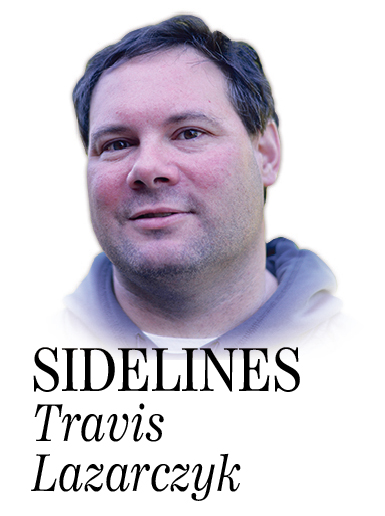That’s two.
Just days before the start of the high school football season, Orono High School announced it would not field a varsity football team in 2019. Just a few days ago, after playing one regular season game, Dirigo High of Dixfield joined Orono, scrapping the varsity football season after a 34-13 loss to Lake Region.
Officials from both schools cited safety concerns, with few players and younger players not ready to compete at the varsity level. Dirigo said in 2020, it plans to play in the 8-man league, which debuted this season to near universal praise and was created for just this reason. It gives football programs struggling to survive a life rope.
We can thank both schools for taking themselves out of potential bad situations before any players were injured. At the same time, both should have seen this coming.
As the 8-man league was developing the Maine Principals’ Association football committee asked every school to have a local discussion on the viability of its 11-man program. Ask yourself, is it sustainable? Ask yourself again, without fans and alumni living unaware or in reminiscent denial about the current situation. Don’t make a decision based on best-case scenarios or participation numbers you see in your junior high football program.
This isn’t a movie. The coach and athletic director aren’t going to stand in front of the team and a setting sun to announce the season is canceled, only to have a dozen new players approach the field ready to play. A group of undersized freshmen are not going to beat a varsity team with grit and trick plays.
The decision to make the move to the 8-man league should have been made with survival in mind, not with whatever irrational stigma some associated with the move. It was a decision that needed honest soul-searching, and that soul-searching that wasn’t done at either Orono or Dirigo.
Dirigo played in the Class E developmental league last season, where it won eight games and defeated Freeport in the state championship game. Orono played in the Class D Little Ten Conference and struggled to get through the season. At times, Orono requested to play the second half with running time regardless of the score. At times, the Red Riots didn’t have enough healthy players to complete a game.
What’s worrisome is, it would come as no surprise if Orono and Dirigo are not the last teams to fold this season. A quick glance at roster sizes, particularly in the Little Ten, is troubling. According to the roster posted on the MPA’s standings page, Mount View has 22 players. Stearns has 23. Washington Academy has 27. It would not take many injuries or simple attrition to make those three programs ask itself if its safe to continue.
The 8-man league was supposed to help prevent these situations. It doesn’t work if all the schools do not buy in. It doesn’t work if they make decisions based on banners on the gym wall rather than bodies on the practice field. Orono’s 48-game win streak from 1977 into the 1982 season means nothing in this context. The gold ball Dirigo won 10 years ago is a memory in a trophy case to the team that just had its season halted.
The fates of Orono and Dirigo remind me of a similar situation that hits close to home. My high school alma mater — Mt. St. Joseph Academy, in Rutland, Vermont — dropped football this season. MSJ has tradition to spare. Tradition is for pep rallies. Tradition yells until its throat is scratchy and sore, but when the enrollment is down and the athletes are no longer available, tradition falls silent.
MSJ had enough tradition, that when the school formed a co-op football team with Poultney, a small school a 30-minute drive away, it was the focal point for a Wall Street Journal story on declining football participation. Last season, back on its own, MSJ lasted four games before low numbers forced suspension of the program. This season, the handful of MSJ students who want to play football are playing for Otter Valley High School, a school a half-hour drive to the north.
Here’s your tradition. 1946. 1949. 1962. 1963. 1969. 1974. 1976. 1977. 1980. 1983. 1985. 1986. 1989. 1990. 1998. 1999. 2005. Those are the years MSJ won the Vermont Division I (Class A in Maine lingo) state football championship. None of those mean boo to more recent Mountie squads trying to play in Division III with fewer than 20 players. Tradition can inspire, but tradition doesn’t block. Tradition doesn’t tackle.
Without the players to back it up, tradition is a malevolent ghost who ends seasons. Hopefully, the situations at Orono and Dirigo are received as a sobering warning to football programs around the state. If you have doubts, go 8-man. Think about the present and the future, not the past.
Travis Lazarczyk — 861-9242
tlazarczyk@centralmaine.com
Twitter: @TLazarczykMTM
Comments are not available on this story.
Send questions/comments to the editors.



